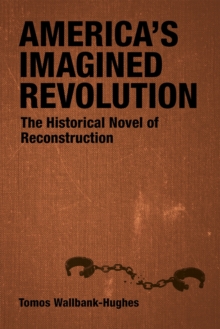
Parnassus on the Mississippi : The Southern Review and the Baton Rouge Literary Community, 1935-1942 Hardback
by Thomas W. Cutrer
Part of the Southern Literary Studies series
Hardback
Description
Parnassus on the Mississippi is a history of the short-lived yet remarkable productive epoch when, in the words of C.
Vann Woodward, ""the center of the avant-garde of American literary criticism shifted temporarily to the banks of the Mississippi at Baton Rouge."" Beginning with the establishment of the Southern Review at Louisiana State University in 1935, Baton Rouge became the home not only to a brand of criticism that would reshape the teaching of literature in America but also to a community of scholars and artists that included Cleanth Brooks, Robert Penn Warren, Katherine Anne Porter, Robert Lowell, Jean Stafford, and Peter Taylor. Thomas Cutrer chronicles how the Southern Review, created in the midst of the Depression by the largess of Louisiana governor Huey P.
Long, quickly rose to the position of the finest American literary journal of its day.
Under the joint editorship of Cleanth Brooks and Robert Penn Warren, the journal published criticism, poetry, and short fiction by writers as eminent as R.P.
Blackmur, Kenneth Burke, T.S. Elliot, and Wallace Stevens. The editors also encouraged and published works by such young talented, and at the time unknown writers as Nelson Algren, Randall Jarrell, Mary McCarthy, and Eudora Welty. During these same years, Brooks and Warren collaborated on three textbooks, An Approach to Literature, Understanding Poetry, and Understanding Fiction, which would revolutionise college English by emphasising the study of a literary work itself, in concrete and precise terms, over the study of the biographical, historical, and moral issues surrounding it.
Brooks also wrote his influential critical works Modern Poetry and Tradition and The Well Wrought Urn, while Warren wrote two novels and some of his finest poems and stories, and absorbed material from the political tumult around him for the work that would later become All the King's Men. The stature of the Southern Review and the vitality of the literary community that it spawned were both, to a great extent, born of the dedication and creativity of Books and Warren, but in other very tangible ways, they were also by-products of the ambition of Huey Long; ironically, it was the actions of one of the assassinated governor's loyalists that brought an end to Baton Rouge's time as a Parnassus.
After a financial scandal rocked the university, a reform administration was appointed which, in its zeal to curb a runaway budget, stopped the funding for the review.
Soon after, Brooks and Warren both left the faculty.
The Southern Review itself would lie dormant until its revival two decades later.
Information
-
Out of Stock - We are unable to provide an estimated availability date for this product
- Format:Hardback
- Pages:312 pages
- Publisher:Louisiana State University Press
- Publication Date:30/06/1984
- Category:
- ISBN:9780807111437
Information
-
Out of Stock - We are unable to provide an estimated availability date for this product
- Format:Hardback
- Pages:312 pages
- Publisher:Louisiana State University Press
- Publication Date:30/06/1984
- Category:
- ISBN:9780807111437










